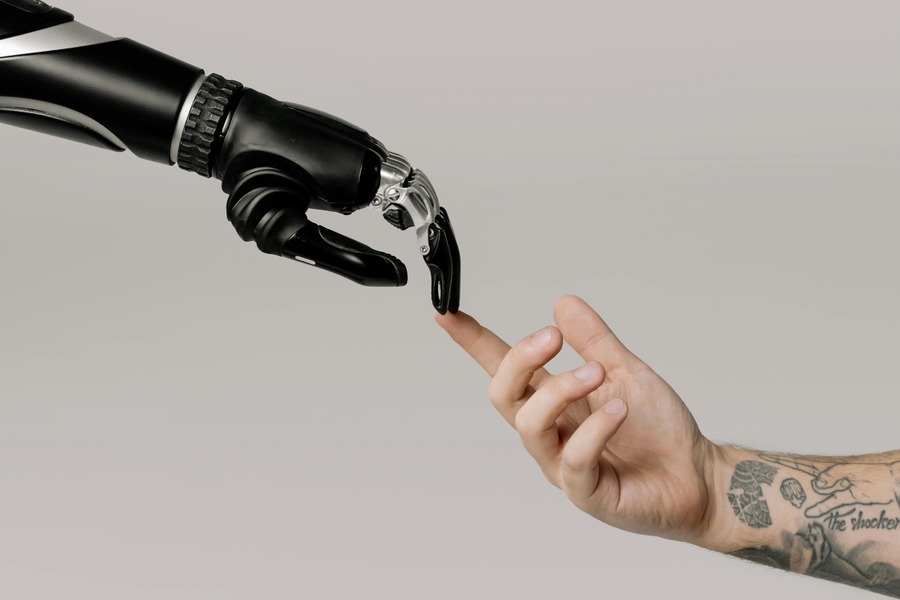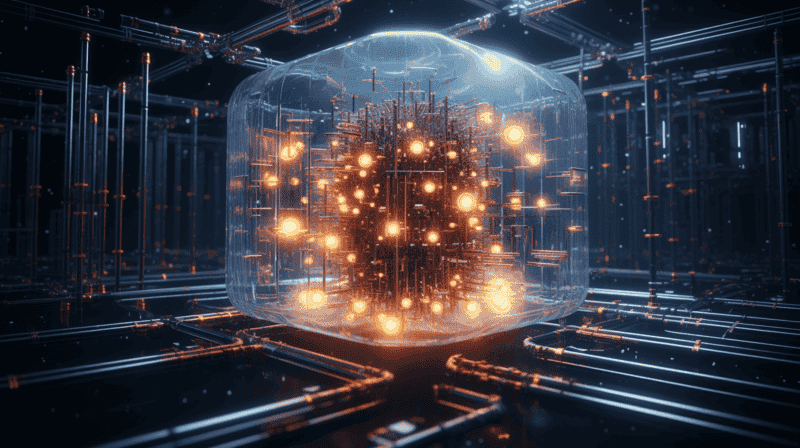AI and Blockchain: A New Era of Technological Innovations
- 02 Sep 2024

The convergence of Artificial Intelligence (AI) and blockchain technology is ushering in a new era of innovation. These transformative technologies are not only reshaping industries but are also redefining how businesses, governments, and individuals operate in an increasingly interconnected world. By combining AI's data-processing prowess with blockchain's decentralized and secure infrastructure, a myriad of possibilities emerges. This article delves deeper into their synergies, explores a broader range of use cases, and discusses the challenges and future trends shaping their integration.
The Synergy Between AI and Blockchain
The synergy between AI and blockchain lies in their complementary strengths. AI thrives on large datasets and sophisticated algorithms, while blockchain excels in secure, transparent, and decentralized data management. Together, they can address challenges related to trust, transparency, and efficiency, paving the way for groundbreaking innovations.
1. Data Security and Integrity
AI systems require vast amounts of data to train and operate effectively. However, this dependency on data introduces risks related to data integrity and security. Blockchain mitigates these risks by creating an immutable ledger where data is permanently recorded and cannot be tampered with.
For example, AI-driven healthcare systems that rely on patient data can utilize blockchain to store sensitive information securely. This ensures that AI algorithms analyze only verified and untampered data, leading to more accurate diagnoses and personalized treatments.
2. Decentralized AI
Traditional AI models often rely on centralized servers, which can become bottlenecks for performance and security. Blockchain enables decentralized AI by distributing computation tasks across a network of nodes. This ensures better fault tolerance, improved data privacy, and democratized access to AI technologies.
A notable example is Ocean Protocol, which leverages blockchain to decentralize AI development and provide a marketplace for data sharing while maintaining user privacy and control.

3. Enhanced Transparency and Traceability
Blockchain’s transparency complements AI's decision-making capabilities. By ensuring every transaction or interaction is recorded, blockchain can provide an auditable trail of AI processes. This is particularly useful in industries where accountability is paramount, such as finance or supply chain management.
In agriculture, for instance, AI can optimize crop yields by analyzing data from sensors, while blockchain ensures that the origin, quality, and distribution of the produce are transparent to consumers and stakeholders.
4. Smart Contracts and Automated Decision-Making
Smart contracts on blockchain networks are programmed to execute actions automatically when predefined conditions are met. When integrated with AI, these contracts become even more powerful, enabling dynamic and real-time decision-making.
In insurance, AI can analyze data from sensors in cars or homes to assess risk and determine claims. Smart contracts can then process payouts automatically, reducing administrative overhead and eliminating delays.
5. Tokenization of AI Models
Tokenization allows developers to monetize their AI models by representing them as digital tokens on a blockchain. These tokens can be bought, sold, or licensed in decentralized marketplaces, encouraging collaboration and innovation in AI development.
For example, SingularityNET provides a platform where developers can deploy and monetize AI services. Users can access these services securely while ensuring developers are fairly compensated.
Expanded Use Cases of AI and Blockchain Integration
The potential applications of AI and blockchain span virtually every sector. Below are additional examples that showcase the versatility of this powerful combination.
1. Healthcare
AI-powered diagnostic tools combined with blockchain's secure data management can transform healthcare. Blockchain ensures data privacy and security, while AI enhances the speed and accuracy of diagnoses. For instance, systems like IBM Watson Health leverage these technologies to provide actionable insights into patient care.
Moreover, blockchain-enabled telemedicine platforms allow patients to share their medical history securely with doctors across borders, fostering global healthcare accessibility.
2. Finance
In the financial sector, AI and blockchain enhance security, reduce fraud, and optimize processes. AI models can predict market trends, detect anomalies, and personalize financial products, while blockchain ensures the transparency and integrity of transactions.
DeFi platforms like Aave and MakerDAO use AI to optimize liquidity pools and interest rates, while blockchain enforces the rules of decentralized lending and borrowing.
3. Supply Chain Management
Blockchain and AI have already begun revolutionizing supply chains worldwide. AI analyzes data to predict disruptions, optimize routes, and automate inventory management. Blockchain ensures that all stakeholders, from manufacturers to consumers, have access to a tamper-proof record of every step in the process.
A compelling example is the Walmart-IBM Food Trust partnership, which uses blockchain to trace food products from farm to shelf in real-time, reducing waste and improving food safety.
4. Energy Management
The integration of AI and blockchain in the energy sector is paving the way for smarter grids and decentralized energy markets. AI predicts energy consumption patterns, while blockchain facilitates transparent energy trading between consumers and producers.
Projects like Power Ledger allow households with solar panels to sell excess energy directly to neighbors, creating a peer-to-peer energy economy.
5. Real Estate
In real estate, blockchain and AI streamline processes like property valuation, fraud prevention, and transaction verification. AI algorithms analyze market trends to provide accurate property valuations, while blockchain ensures secure and transparent record-keeping of property transactions.
Additionally, platforms like Propy are using blockchain to enable cross-border real estate transactions, reducing bureaucratic delays and increasing efficiency.
6. Intellectual Property and Content Creation
Content creators, including artists, musicians, and writers, face challenges in protecting their intellectual property. Blockchain provides immutable proof of ownership, while AI assists in creating original content and detecting plagiarism.
For instance, AI can generate music or artwork, and blockchain can track its usage, ensuring that creators are compensated every time their work is accessed or distributed.

7. Education
AI and blockchain are transforming education by creating personalized learning experiences and ensuring the credibility of certifications. AI-driven platforms adapt lessons to individual learning styles, while blockchain secures academic records and prevents fraud in certifications.
Future Potential and Challenges
1. Scalability and Interoperability
One of the biggest challenges in integrating AI and blockchain is scalability. Both technologies demand substantial computational resources, which can lead to high costs and slower performance at scale. Advances in technologies like Layer 2 solutions for blockchain and distributed AI architectures are essential to overcome these hurdles.
2. Ethical Considerations
AI and blockchain bring unique ethical challenges. AI can perpetuate biases in decision-making, while blockchain’s immutability can lock in harmful or outdated information. Developing comprehensive ethical standards is critical to address these issues responsibly.
3. Regulatory Hurdles
The global regulatory landscape for AI and blockchain remains fragmented. Harmonizing regulations across jurisdictions will be crucial to fostering innovation while mitigating risks related to privacy, security, and misuse.
4. Integration with Other Emerging Technologies
The convergence of AI and blockchain with IoT, 5G, and quantum computing holds immense potential. These combined technologies can enable smart cities, autonomous vehicles, and real-time global logistics, fundamentally transforming how we live and work.
Conclusion
The fusion of AI and blockchain is more than just a technological trend—it is a paradigm shift poised to reshape industries and societies. By addressing key challenges and embracing their combined potential, we can unlock a future of unprecedented innovation, efficiency, and trust.
For further exploration on the topic, check out our detailed guide on everything you need to know about blockchain technology.







